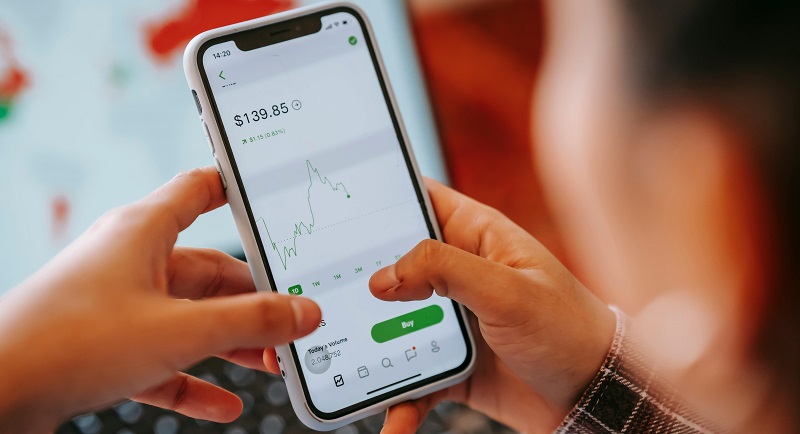A full-fledged revolution in the trading industry is underway in Africa due to the tremendous spread of artificial intelligence and other digital tools. By the end of 2025, the Africa region is expected to grow 30% per year in the Forex market, and the mobile trading apps will be a critical component in that growth.
This article aims to analyze the impact of artificial intelligence and other digital tools on Forex and commodity trading in Africa and discusses the factors of growth in the market, the impact of Artificial Intelligence, digital trading tools, mobile technology, and future growth.
The Growth of Online Trading in Africa
The online trading industry in Africa has seen tremendous growth in the past ten years due to the ready availability of the internet, the growth in the number of users of mobile phones and other technological advancements in the field of finance. An astounding number of retail traders are entering the market in a number of regions, for example, Kenya, Nigeria and South Africa. Digital trading accounts are a prime example of the level of interest that the population of Kenya has in trading, as in the last 3 years, the number of accounts has seen a tremendous growth, particularly in trading of commodities like oil, gold and currency pairs.

As a trader, individual users can now use interfaces that allow them to track changes in multiple markets at the same time, perform transactions instantly, and pay effortlessly. A large part of these interfaces is designed to be used on mobile gadgets, thus enabling users to work and trade from outside the typical office or desktop. For customers looking at the best forex brokers in Kenya, these types of interfaces permit access to forex trading and global markets with security and transparency.
Online trading self-growth is not only about the increase in participants. It also reflects a changing attitude to finances in the region. Not long ago, trading was only available to financial organizations or professional agents. Digital technology has changed this, and now many more people can access these services and, more importantly, learn and gain useful experience.
How Artificial Intelligence is Changing Market Analysis
Artificial Intelligence technology is redefining the response of traders based on their analysis of a certain market. These tools use AI, allowing the user to utilize large volumes of historical data and real-time data significantly faster than a human. These AI tools also help to faster internalize data and highlight trends that human traders would find difficult to grasp. These features allow better and faster decision-making and analysis on sensitive issues.
To illustrate, forecasting models are capable of predicting future fluctuations of currencies and commodities by taking into account economic data, geopolitical developments, currency order books, and certain social sentiments gleaned from news and social media coverage. Application of AI algorithms on such datasets in near real-time can enable detection of certain opportunistic/critical outlier patterns well before such phenomena could be established through conventional manual analytical methods.
If you are searching for a forex trading app in Kenya, AI functionalities are being added to mobile applications. These functionalities, which include automated market notifications, advanced charting, and real-time recommendations, are more prevalent on mobile applications than their web counterparts. AI technologies have their faults, yet their ability to improve performance in difficult and chaotic market conditions is drastic.
Digital Platforms Making Trading More Accessible
The emergence of new digital trading platforms has simplified and made participation in the forex and other commodity markets more than easy. These platforms are user-friendly and intuitive, accommodating moderate and advanced traders in equal measure. A majority of the platforms provide a demo account, market data feeds, and other risk management instruments, which enable users to understand market dynamics and test certain strategies before committing real funds.
The educational resources embedded within these technologies assist in the comprehension of trading modules, pricing frameworks, and portfolio management systems. This development has lowered entry barriers, enabling those who previously had no access to financial services to participate in the financial markets.


The wider access to mobile and web-based platforms has enhanced transparency in the industry. Market participants are able to monitor their trades and check their performance, enhancing confidence in the systems and platforms in use. For users in remote locations where traditional brokerage offices are unavailable, these mobile and web-based platforms provide access to international trading markets.
The Role of Mobile Technology in Financial Inclusion
Africa, as a whole continent, has experienced remarkable mobile phone access, and mobile technology is crucial to financial inclusion. Most people have access to mobile phones, enabling the use of the internet. On these phones, mobile trading applications allow you to trade, transact, supervise, and get instant access to market updates anytime from anywhere.
In Kenya, there has already been a change in how people deal with their finances through the use of mobile money services. It is through trading applications that people are able to fund accounts, withdraw profits, and engage in the market even in the absence of traditional banking services. This mobile-first approach is making it easier to access services through the use of technology for banking, which gives people a chance to access services that they have never had before.
Read also: 33 African startups raised $93 million in August led by Nigeria, Egypt and Kenya








